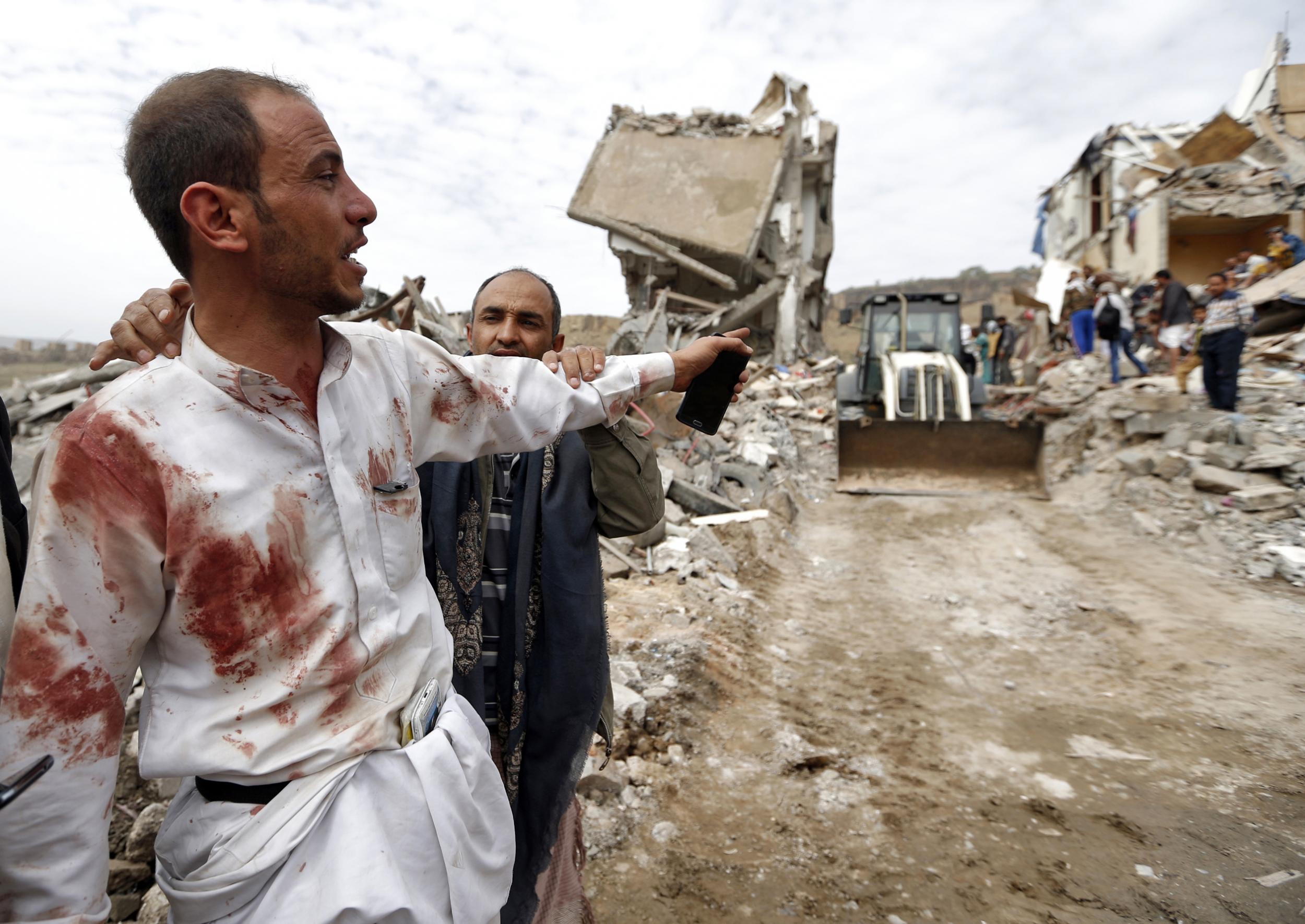Saudi Arabia admits Yemen air strike that killed 6 children was a ‘mistake’
Deadly Saudi-led bombing latest in wave of strikes across rebel Houthi territory to kill non-combatants

The Saudi-led military coalition operating in the Yemeni civil war has said that a bombing of the capital Sanaa that killed at least 14 civilians – including six children – was the result of a “technical mistake”.
The 25 August strike was “accidental and unintentional” and the authorities expressed “sincere sympathy” for the loss of civilian life, a statement from coalition spokesperson Colonel Turki al-Malki told Saudi state news agency SPA on Sunday.
Targeted Houthi rebels had set up a “command and communications centre in the middle of this residential area to use civilians as human shields”, he added.
Three families who lived in the targeted three-storey building in the Faj Attan neighbourhood of Sanaa lost loved ones in the overnight attack, which also destroyed several nearby houses.
The incident came just two days after the bombing of a hotel just outside the capital, which killed an estimated 45 people, many of whom were civilians, and over which the UN has called for an investigation and issued a sharp rebuke to Saudi Arabia and its military partners.
Riyadh and its allies have used Iran’s influence over Yemen’s Houthi rebels to justify an extensive bombing campaign since March 2015, carried out at the request of the exiled, internationally-recognised Yemeni president, Abdrabbuh Mansour Hadi.
The campaign has been repeatedly criticised for causing an excessive loss of civilian life.
A report authored by several international aid agencies released earlier this month said Yemen suffered more air strikes in the first half of this year than in the whole of 2016, increasing the number of civilian deaths and forcing more people to flee their homes.
Western governments have also faced criticism for their role in the war: arms sold to Saudi Arabia are destined for use in the Yemeni war, rights groups say.
Officials within former US President Barack Obama’s administration worried the sales could amount to complicity in war crimes.
Yemen’s conflict has left around 70 per cent of the 27-million strong population now reliant on some form of humanitarian aid. A total of 14.5 million people don’t have regular access to clean water, 7.3 million live on the brink of famine and more than 500,000 people have been infected by the worst cholera outbreak in modern history.
Saudi blockades on Yemen’s ports and airspace have been blamed for adding to the misery by holding up desperately needed food, medicine and other supplies from entering the country.
Air strikes have on several occasions hit hospitals and other vital civilian infrastructure.
On Saturday, a coalition of civil society groups in Yemen called on the UN to establish an international independent and joint commission for investigating alleged human rights violations and abuses inside the country.
Join our commenting forum
Join thought-provoking conversations, follow other Independent readers and see their replies
Comments